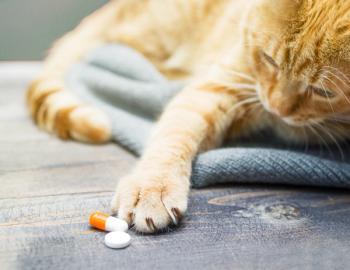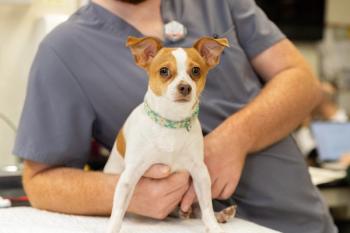
Navigating the veterinary internship and residency maze
The Match can be an overwhelming, intimidating process but a veterinary surgery resident has advice and information for those considering applying to internships and/or residencies
Whoever said “If you love what you do, you’ll never work a day in your life” clearly was not a veterinarian. More appropriately, the expression should go something along the lines of “if you love what you do, you’ll be willing to work more hours than you thought were possible, to achieve your dreams.” This expression is twice as true for those of us who want to pursue additional training through internships and residencies. It was once the case that if you wanted to specialize, your path to get there would be to finish your 4 years of veterinary school and then do a rotating internship for a year.
Armed with your extra year of specialty exposure, you could jump into the residency of your choosing. While this fortunate situation exists for some, the large majority take a more circuitous path, often pursuing (sometimes multiple) specialty internships prior to finally being accepted into a residency. Here’s all you need to know about the path to a residency.
What is the Match?
Most internships and residencies can be found on the Veterinary Internship and Residency Match Program (VIRMP) website. This is where institutions list available positions and applicants can apply for those positions. This is like the “common app” when you applied to undergraduate programs, where the same documents can be sent to multiple institutions, so you don’t have to submit the same information for multiple programs. There are a few institutions that may ask for supplemental applications, but this information will be indicated in their position description on the VIRMP. Applicants may apply for as many internships and residencies within a given specialty as they wish, and they can even apply for both at the same time.
Pricing of the applications is a tiered system based on how many institutions you apply to whether it’s $95 for 0-10, $260 for 11-20, or $365 for over 21 applications.1 Application deadlines are pre-determined and listed on the VIRMP website, usually in January of the upcoming year. Then, interviews are extended by the institutions to certain individuals, and take place over the next one and a half months.
Rankings are due by mid-February. This is where applicants will rank the institutions they have applied to in order of their preference, and institutions will in turn rank their applicants. Applicants do not have to rank all institutions they have applied for and institutions do not have to rank each applicant who applied to their program. A computer algorithm then matches applicants to their ranked institutions, with preference given to the applicant. By early March, the Match results are finalized and every applicant and institution are told where and with whom they have matched. For some, this means landing the program of their dreams. However, for many it means matching into an internship instead of a residency or not matching to a program at all.
What can I apply to within the Match?
The VIRMP has a wide array of programs available in both small and large animal, exotics, and non-clinical practice with rotating internships, specialty internships, and residencies. A rotating internship is typically the first internship a veterinarian can apply for and entails rotating through most specialties within a given multispecialty hospital. A rotating intern will spend a predetermined amount of time on a specific service and rotate (hence the name) to different services throughout the year. This allows you to get in depth experience in a wide variety of clinical disciplines to make you a more well versed, experienced veterinarian.
Following completion of a rotating internship, you can then apply to specialty internships and residencies, as these programs typically have a prerequisite of previous completion of a rotating internship. In the case of specialty internships, you will spend an entire year within a specific specialty. Typically, applicants enroll in the same specialty internship they hope to pursue a residency in, such as surgery or internal medicine, or they may enroll in a research internship. The additional year of experience hopefully strengthens your residency application for the following year and gives you more in-depth experience within your chosen specialty.
Specialty internships are not required, and some applicants are fortunately strong enough to get accepted into a residency program directly from a rotating internship. It’s important to know that you can apply for both specialty internships and residencies at the same time. The VIRMP will default to matching you into a residency over a specialty internship.
What’s available outside of the Match?
Not all programs elect to have their open positions on the VIRMP. Often, programs will reach out directly to institutions with internships to let them know positions will be available for the following year. Additionally, each veterinary specialty college will have a list of residency-accredited institutions. This list can be cross-referenced with the programs available on VIRMP and you can quickly find out which programs are qualified to have a residency/internship. Not all qualified programs will have open positions available every year, and many programs may skip years between resident/internship classes for various reasons.
A friendly email inquiry never hurts though! Programs that are listed outside of the Match often have an earlier timeline than the VIRMP match programs. Applicants will typically apply for both types of programs and find out their acceptance to the “outside of Match” programs ahead of the VIRMP results. If accepted to one of these programs, you will typically be required to commit before the Match date, and likely be required to withdraw from the Match to avoid double acceptance.
The scramble
So, what happens if you don’t match? Unfortunately, this is a question many of us have had to answer. After match results are released, a simultaneous list of institutions and applicants who have not matched becomes available to those within the VIRMP system. Unmatched applicants and institutions can contact each other to see if they would make a good fit. Some institutions may elect not to fill out their availability and some applicants may elect to pursue other opportunities outside of the VIRMP match, so there is no commitment to selection at that point. After a few weeks, this list goes public and those outside of the match can contact the available institutions with open positions if they are interested.
Is it even worth it?
In my opinion, if you have a passion for a certain specialty of veterinary medicine, you should do everything in your power to explore that passion to the best of your ability. Unfortunately, passion alone often isn’t enough to beat the bleak odds of matching and make the extra years of training, and the massive pay cut during internship/residency training worth it.
The journey towards specializing is a competitive one, so I would urge you to look inward and be honest with yourself. Do you think you’ll get there and is the end of the road worth the tough journey for you if you make it? How many years of specialty training in the form of internships are you willing to do for the opportunity to match into a residency? These questions are not meant to be discouraging but are meant to be humbling and put matters into perspective. This journey isn’t ideal for many people, so it’s worth having honest discussions with mentors, family, and friends to decide if the road to a residency is right for you.
In conclusion
Even if you don’t go into a residency, but start your journey towards specializing, your years in rotating and specialty internships will not be wasted. They will allow you to work in a high-level specialty hospital while training under some of the brightest minds in the profession. You will undoubtedly grow and learn during your time in these positions and will become a more well-rounded, experienced clinician.
There’s also nothing that says you must specialize! Many people choose to do a rotating internship as a way of exploring different specialties or just to gain more experience before going into practice with less need for supervision. For many people, additional specialty training isn’t right for them, and that’s okay too! You can still become a fantastic veterinarian without pursuing additional training from internships and residencies.
Reference
VIRMP info. Veterinary Internship and Residency Match Program. Accessed December 21, 2023. https://www.virmp.org/Home/VIRMPInfo?page=13
Newsletter
From exam room tips to practice management insights, get trusted veterinary news delivered straight to your inbox—subscribe to dvm360.





